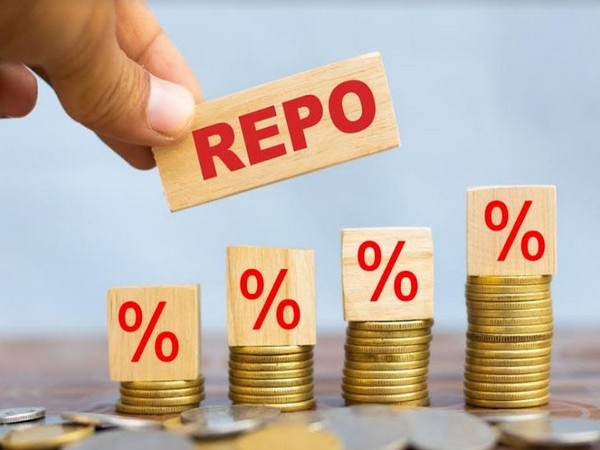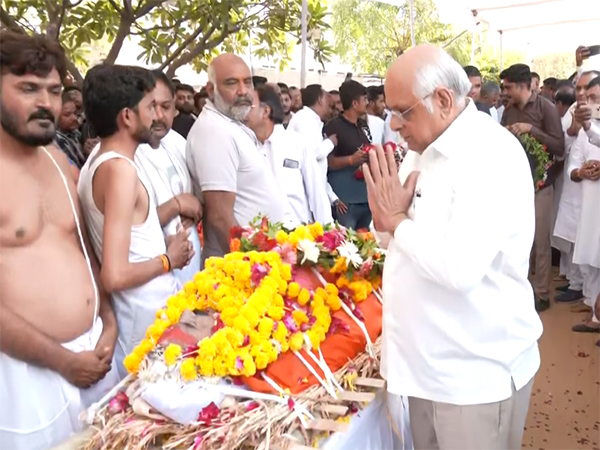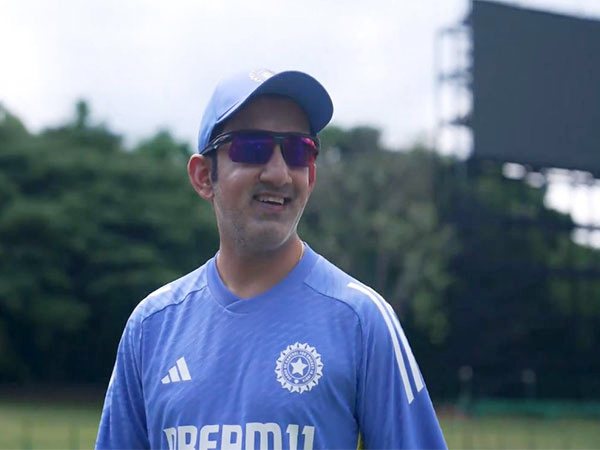TERI-UNOPS Initiative Empowered 27000 School Children in Uttar Pradesh on Climate Change, Health, and Hygiene Practices
Jun 21, 2024

NewsVoir
New Delhi [India], June 21: A TERI-UNOPS (The Energy and Resources Institute - United Nations Office for Project Services) collaborative initiative on "Capacity Building Programme Targeting School Children on Climate Change, Health, and Hygiene across 11 Districts of Uttar Pradesh, India", concluded with a National Conference held in New Delhi on Thursday. The national workshop involving various stakeholders from ministries, UN agencies, and partners was held to share lessons from the field, exchange best practices from the project, and discuss scaling-up efforts. The project, conceptualized around the combination of three Sustainable Development Goals (SDGs), namely SDG 3 (ensure healthy lives across all ages), SDG 6 (ensuring the availability and sustainable management of water and sanitation for all) and SDG 13 (limiting and adapting to climate change), aims to improve public health and raise community awareness. It incorporates climate change adaptations into the curriculum for school children in 11 districts of Uttar Pradesh, where unique challenges related to water, sanitation, health, and climate change are prevalent. The project especially focuses on teenage girls, providing them with the tools to effectively manage and preserve water sources.
Dr Dipankar Saharia, Senior Director, TERI, welcomed the guests, dignitaries and particularly congratulated the students emphasizing their role as ambassadors of climate change. "You all are the torch bearers of the initiative and shoulder the responsibility of taking forward this message to the community to tackle the changing climate and make the environment clean. This will go a long way in achieving our sustainability initiatives," he said.
Elaborating on the on-ground initiatives, Vinod Mishra, Country Manager, UNOPS India, expressed the organization's delight in collaborating with the Government of Uttar Pradesh to organize vital workshops for 27000 children across 162 schools. "Students can be the champions, if trained, can be the Ambassadors", expressed Mishra giving a rationale of the very project which has been conceptualized on the basis of three SDGs. Taking the audience through the objectives of the project, he further added, "By focusing on critical areas such as access to clean water, the impact of climate change, and comprehensive WASH (Water, Sanitation, and Hygiene) facilities, we are directly addressing Sustainable Development Goals 3, 6 and 13. This initiative not only aims to enhance public health but also empowers communities by incorporating climate change adaptations into the educational curriculum."
Highlighting the project's achievements, Dr Neha, Senior Fellow, TERI, stated that the initiative raises awareness of climate change, water conservation, and menstrual health among school children. It also promotes sustainable water-saving practices in schools and aims to influence water management and conservation at family and community levels. This was followed by the student climate champions sharing their experiences and the screening of a project video.
Bharat Lal, Secretary General, National Human Rights Commission, Shombi Sharp, UN Resident Coordinator, Freddy Svane, Ambassador at the Royal Danish Embassy in India, and Dr Muawia Elbukhari, Ambassador of Sudan in India, delved further into the achievements of the project in their special addresses. Highlighting the importance of Jal Jeevan Mission and the factors necessary to contribute towards its success, Bharat Lal, said, "There is need for UN agencies and organizatons like TERI who have an important role to play in the success of such projects through the children and youth. Achieving the mission of Vikshit Bharat will not be possible without children. A clean and green India can happen only by training and educating the children," he emphasized.
Referring to the current situation of triple planetary crisis, Shombi Sharp, said, "There is no better engine than youth for achieving sustainability." Highlighting power of the large youth base in India, he further added, "India has more young minds, which means more young people bringing solutions to the problems than any country had before. So, this is about the youth and India is pushing the action climate action and climate justice for a sustainable future."
Freddy Svane emphasized the need to bring about a change at an individual level. "Take individual responsibility, for you are the ones who can harness the dividend of the young democracy. Do it through individual change," was his message to the children present.
"Students would be the leader of the community. We are surrounding them with the messages on climate change, health and sanitation means we are empowering them so that they tackle the issue individually," underscored Dr Muawia Elbukhari. The launch of the Project Manual was followed by a panel discussion on the role of students as change agents in disseminating knowledge and building community capacities on climate change, environment, health, and hygiene. The panel, moderated by RR Rashmi, Distinguished Fellow, TERI, included Yugal Kishore Joshi, Adviser, NITI Aayog, Government of India, as the chair, alongside representatives from embassies, UN agencies, state and central governments, CSOs, and international partners. Further, the Student Climate Champions were felicitated by notable figures including the Panama First Secretary, Freddy Svane, and Dr Dipankar Saharia, Senior Director, TERI.
The event concluded with a strong commitment from all stakeholders and closing remarks by Ms Elizaveta Zalkind, Coordination Specialist at the UNOPS Office of the Regional Director for Asia. She emphasized the importance of continuing to support and expand such initiatives to build a more sustainable and resilient future by creating climate-resilient communities.
The Energy and Resources Institute (TERI), based in India, is an independent, multi-dimensional research organization with capabilities in policy research, technology development, and implementation. An innovator and agent of change in the energy, environment, climate change and sustainability space, TERI has pioneered conversations and action in these areas for nearly five decades. Headquartered in New Delhi, it has centres in six Indian cities, and is supported by a multi-disciplinary team of scientists, sociologists, economists, engineers, administrative professional and state-of-the-art infrastructure.
The United Nations Office for Project Services (UNOPS) is an operational arm of the United Nations, supporting the successful implementation of its partners' peacebuilding, humanitarian, and development projects around the world.
As the world is witnessing the effects of climate change, India too is affected by the climate change. The climate changes have been seen in the form of recurring droughts, cloud bursts and flooding causing impacts on water resources in terms of quantity and quality and have affected the livelihoods of human and livestock. Schools are no exception to these impacts and have suffered water scarcity situations at large making impacts on drinking water availability, maintaining minimum standards of hygiene and sanitation at school affecting the learning of the children who attend the schools. Girls, especially adolescents, have suffered most as their water requirements for maintaining hygiene and sanitation are relatively more compared to boys. Many schools serve mid-day meals which has been one of the reasons for increased school attendance among children and also nutrition supplement to them. The impacts of droughts or water scarcity and their magnitude have been varied in schools depending on the local situations.
(ADVERTORIAL DISCLAIMER: The above press release has been provided by NewsVoir. ANI will not be responsible in any way for the content of the same)




















